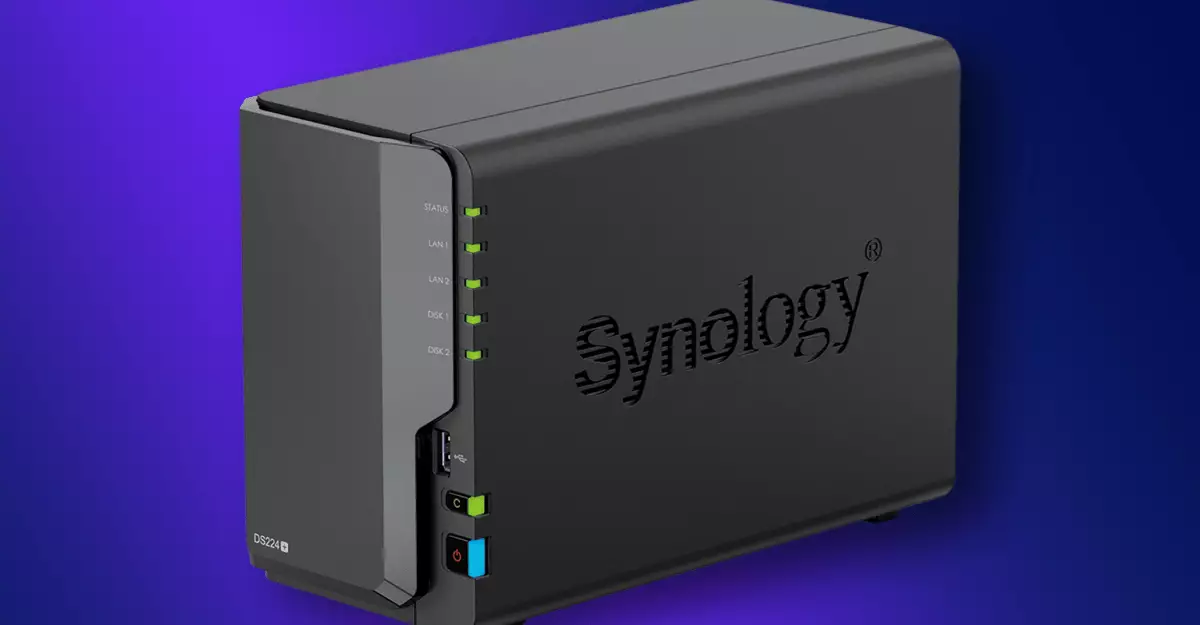As technology continues to advance, so too do the policies that govern the way we interact with our devices. Recently, Synology announced a significant shift in its approach to network-attached storage (NAS) systems set for release in 2025 and onward. While the existing devices will remain unaffected, the changes poised to roll out in new models raise essential questions about consumer choice and the implications for third-party hardware. In the realm of personal and small business storage solutions, the decision to limit compatibility with third-party hard drives may have far-reaching consequences.
The Implications of Proprietary Standards
Synology’s decision to enforce restrictions on hardware compatibility marks a transition towards a more controlled ecosystem within the NAS landscape. This move could potentially limit users’ ability to select from a diverse array of hard drives, nudging them towards a reliance on Synology-branded products. While the company argues that such measures are designed to improve reliability and performance based on internal testing, it is crucial to scrutinize the implications for end-users. This shift may lead to increased costs and reduced flexibility — a situation that can stifle innovation and disempower consumers.
Consumer Response: A Mixed Bag of Sentiments
The reactions to Synology’s announcement are likely to mirror the complexities of consumer sentiment in the tech industry. On one hand, existing NAS users can breathe a sigh of relief, knowing that their current systems remain unaffected. However, potential buyers of future Synology NAS devices may feel a pinch as their choices are standardized and restricted. While the retention of compatibility with J- and Value-series devices provides some reassurance, the premium placed on certified drives could sour the user experience for many.
The mood among tech enthusiasts and everyday consumers appears to be one of cautious skepticism. Enthusiasts may appreciate the focus on reliability; however, they often cherish the freedom to mix and match hardware components to tailor their systems to specific needs. The challenge for Synology will lie in balancing its quality control aspirations with the expectations of a diverse and demanding customer base.
Quality Control or Cost Cutting?
Advocates for stringent quality measures argue that restricting drive compatibility is a necessary step towards minimizing failures and enhancing overall system performance. These proponents emphasize the potential for fewer compatibility issues and more robust system reliability. Yet, the question remains—does this decision stem from a genuine desire to offer superior user experience, or is it more about securing profitability through proprietary hardware sales?
Given the competitive nature of the technology market, one cannot ignore the financial motivations behind such policies. By streamlining hardware options, Synology might find it easier to market its products and reduce the instances of tech support headaches, but at what cost to innovation? Established players in the NAS space have historically thrived by offering compatibility with a broad spectrum of hardware; thus, Synology’s pivot could disrupt its standing among loyal users.
The Future of Consumer Technology
As Synology amplifies its proprietary narrative, it inadvertently exposes a larger trend in consumer technology—restrictive practices in the name of quality assurances. While a number of companies have successfully navigated consumer demands by providing customizable and open systems, others have chosen a guarded approach, reinforcing the reality that not every tech company champions user empowerment.
The salient question we must ask ourselves is: how will this approach impact the broader tech community? As consumers grow increasingly aware of their choices and vocalize their preferences for inclusivity and flexibility, companies must adapt or risk finding themselves alienated from their customer base.
In the final analysis, Synology’s new restrictions might streamline its operations and improve testing reliability, but they also pose a significant risk of alienating a segment of the market that values independence and choice. It’s pivotal for tech entities to remember that empowered consumers are often the most loyal, and that their needs should remain at the forefront as the industry evolves.

